
Since its inception in 1996-97, Australia and India have played 44 Test matches in the Border-Gavaskar Trophy series with Australia winning 17 of them and India winning 18.
With India ready to engage in another four-Test face-off in Australia’s backyard starting with the first Test at the Adelaide Oval from December 6, here’s a combined Australia-India XI that includes some of the top performers from the Border-Gavaskar series.
Opener: Virender Sehwag
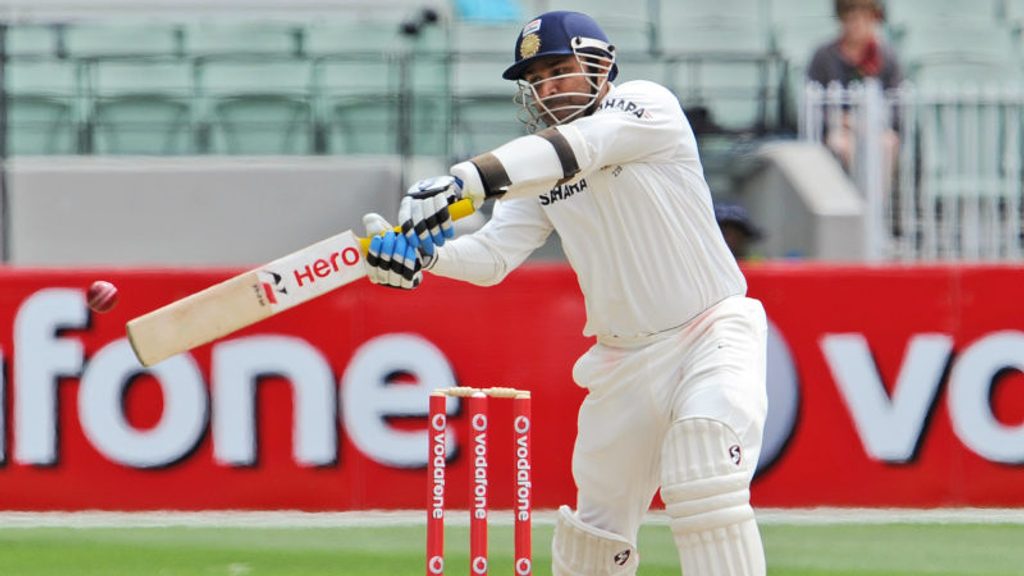 Sehwag has 1738 runs from 22 matches at 41.38 and an impressive strike rate of 75.20
Sehwag has 1738 runs from 22 matches at 41.38 and an impressive strike rate of 75.20
With 1738 runs from 22 matches at 41.38 and an impressive strike rate of 75.20, Sehwag is the seventh-highest scorer in Border-Gavaskar clashes and the second-highest scorer among regular openers behind Matthew Hayden.
During India’s 2003-04 tour, Sehwag formed a good opening partnership with Aakash Chopra that helped the likes of Rahul Dravid, Sachin Tendulkar and Sourav Ganguly bat the way they did as India drew the series 1-1, which remains their best result against Australia away from home in recent decades. He made a blistering 195 at the MCG in the second Test of that tour.
Opener: Matthew Hayden
 Hayden has 1027 Test runs in India at 51.35
Hayden has 1027 Test runs in India at 51.35
Hayden is the top scorer among openers in the history of the series with 1888 runs from 18 matches at 59.00 with six centuries. The left-hand batsman was especially good in Indian conditions, where he has 1027 runs at 51.35. He was one of the highlights of the 2001 series: in the deciding Chennai Test, he smashed 203 in Australia’s first-innings 391. The game was a thriller, with India winning by two wickets, but Hayden’s monumental knock earned him the Player of the Match award.
No.3: Ricky Ponting (captain)
 Ponting led Australia to a Test series win in India in 2004
Ponting led Australia to a Test series win in India in 2004
One of Australia’s most successful captains, Ponting lifted the Border-Gavaskar trophy at home in 2007-08, after a historic away series win in 2004. No Australian batsman has made more runs against India than his 2555 from 29 Tests at 54.36. He starred in the famous Adelaide Test of 2003, where his 242 in Australia’s first innings led them to 556, only to be overshadowed by Dravid’s 233 in India’s first knock and Ajit Agarkar’s 6-41 in Australia’s second as the tourists registered a rare win, by four wickets.
No.4: Sachin Tendulkar
 Tendulkar leads the batting charts in Border-Gavaskar series clashes with 3262 runs
Tendulkar leads the batting charts in Border-Gavaskar series clashes with 3262 runs
The highest scorer in the history of Tests between the two sides, Tendulkar has a number of records to his name: most runs (3262), most centuries (9), most half-centuries (16), most fours (391) and sixes (16). If we look back to before the trophy was introduced, these figures rise to 3630, 11, 16, 434 and 25 respectively. The leader of India’s batting line-up for most parts of the 1990s and 2000s up until his retirement in 2013, Tendulkar had many memorable moments against Australia but perhaps the most poignant of them all was his herculean 241* in Sydney in the New Year’s Test of 2004 after returning 0, 1, 37, 0, and 44 on that tour.
No.5: Steve Smith
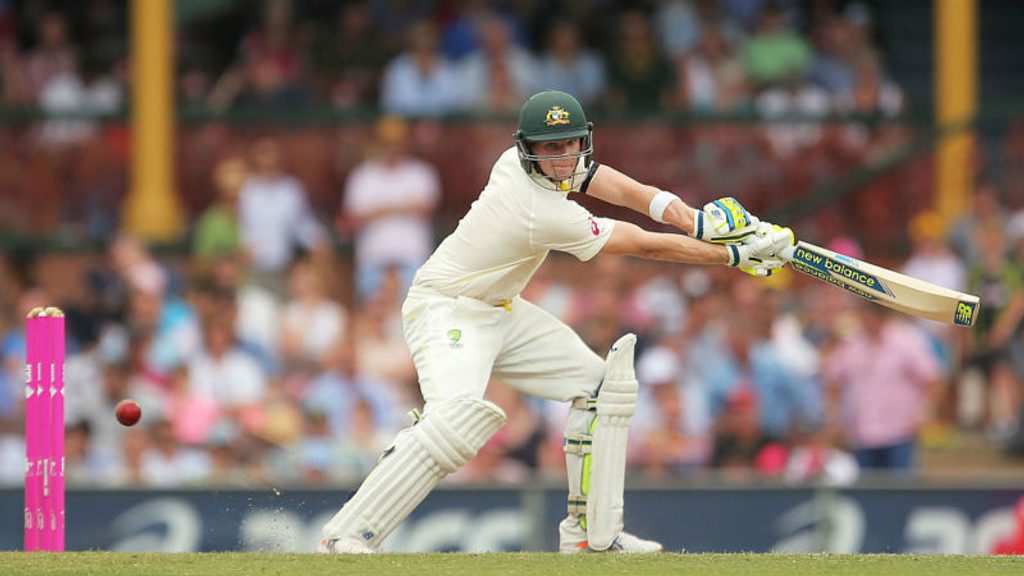 Smith averages a majestic 84.05 from 10 Border-Gavaskar Tests
Smith averages a majestic 84.05 from 10 Border-Gavaskar Tests
Such has been Smith’s record against India that it wouldn’t be exaggeration to say that he already sits in the pantheon of greats in this match-up. An incredible average of 84.05 from 10 Tests in which he has scored 1429 runs makes him eighth in the list of all-time scorers.
Out of his seven centuries, three came in India on the 2017 tour, including a magnificent second-innings 109 on a dangerously turning track in Pune to give Australia a winning start in the series. The other four of his hundreds were during India’s last tour to Australia in 2014-15 when he finished as the highest scorer in the series. Suffice to say Australia will miss him this time around.
No.6: VVS Laxman
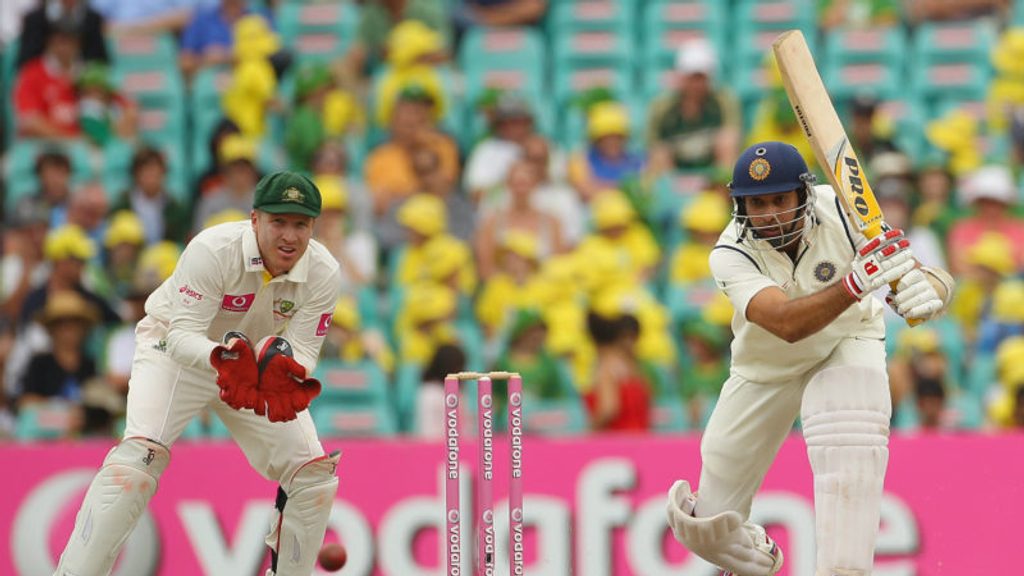 Laxman’s unforgettable 281 in the epic Kolkata Test of 2001 helped India register one of their greatest wins
Laxman’s unforgettable 281 in the epic Kolkata Test of 2001 helped India register one of their greatest wins
India’s rescue man in the most perilous of situations, Laxman’s shot to glory was his immortal 281 in the epic Kolkata Test of 2001 where he shared a 376-run stand with Dravid, who accompanied Laxman for the whole fourth day while making 180 runs, to help India register a come-from-behind win after being asked to follow on. He is the third-highest scorer after Tendulkar and Ponting with 2434 runs from 29 Tests at 49.67 and batted mostly at five or six, which makes his numbers all the more remarkable. His 338 fours are next to Tendulkar’s 391.
No.7: Adam Gilchrist (wicket-keeper)
 Gilchrist has the most dismissals of all wicket-keepers in Border-Gavaskar series
Gilchrist has the most dismissals of all wicket-keepers in Border-Gavaskar series
A wicket-keeper par excellence and a destructive batsman lower down the order, Gilchrist has the most number of dismissals (75) of all wicket-keepers to have played in the series. The left-handed batsman also scored 809 runs at an impressive strike-rate of 76.20 with two centuries, batting mostly at No.7, which made him a tough man to contend with in the lower half of the batting order.
No.8: Anil Kumble
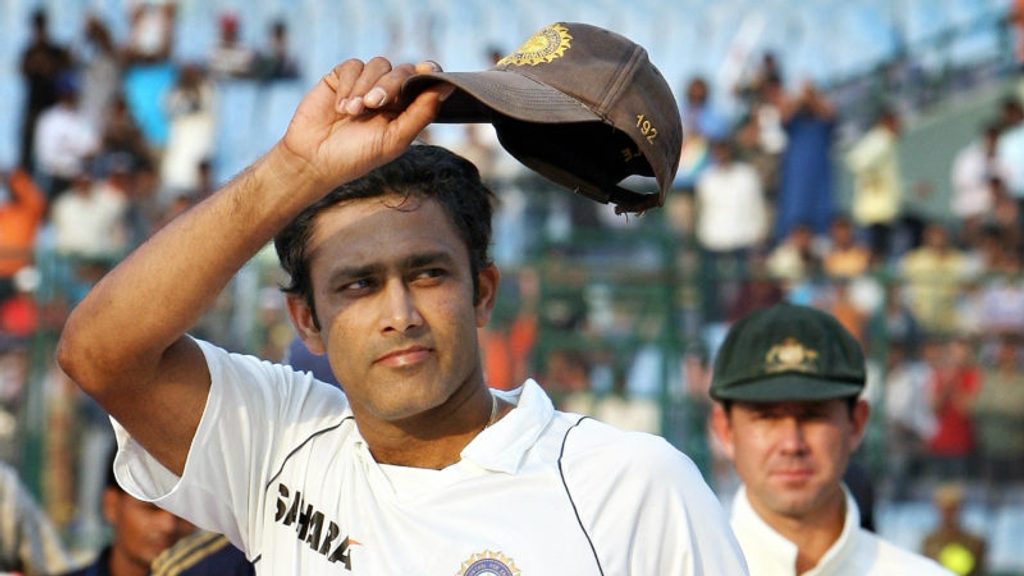 Kumble finished with 111 wickets in Border-Gavaskar clashes
Kumble finished with 111 wickets in Border-Gavaskar clashes
The highest wicket-taker in Border-Gavaskar clashes and one of India’s match-winners on numerous occasions, Kumble led India during the 2007-08 tour and helped India win their second, and so far the last, Test in Australia since 2000 when the visitors registered a 72-run win after being 2-0 down in the series. He also jointly led the team to a 2-0 win on Australia’s return tour in 2008.
His 111 wickets 30.32 from 20 Tests keep him clear of any Australian bowler on the list, with Nathan Lyon coming closest with 64 strikes. His 8-141 in the Sydney Test of 2004, where India had put up a mammoth 705-7 dec. remain his best figures against Australia. He also has 10 five-wicket hauls, more than any other bowler.
No.9: Brett Lee
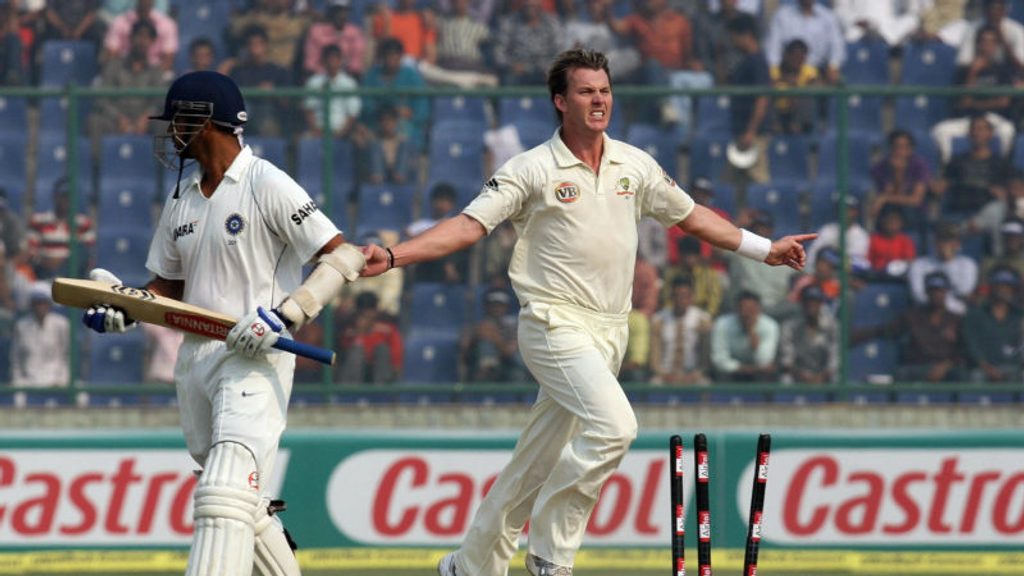 Lee picked up 53 wickets against India
Lee picked up 53 wickets against India
Possibly the fastest bowler to have featured in these encounters, Lee’s 53 wickets from 12 games outdo Glenn McGrath’s tally of 51. A bowling average of 31.98 and a strike-rate of 57.1 with two five-wicket hauls to his name made him a tough nut to counter, especially when he’d been hurling rockets at speeds exceeding 90 mph. His 5-47 on Test debut against India in 1999 helped Australia win the Boxing Day Test by 180 runs.
No.10: Zaheer Khan
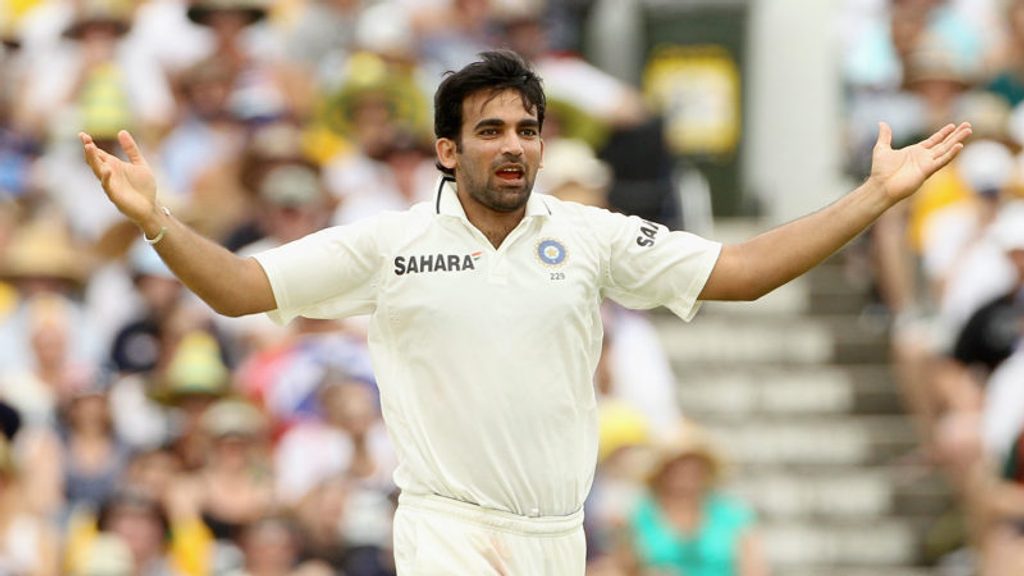 Khan was the most successful of all Indian fast bowlers in the Border-Gavaskar series
Khan was the most successful of all Indian fast bowlers in the Border-Gavaskar series
Khan has the most wickets (61) among all Indian fast bowlers in the history of the series and his left-arm pace with the ability to swing the ball both ways created a lot of trouble, especially for opening batsmen. He enjoyed a memorable outing during the first Test of Australia’s 2008 tour, where he picked up 5-91, his best in India-Australia clashes, and also scored a half-century (57) to help India inch closer to Australia’s first-innings 430. Khan bowed out with 15 wickets from four Tests during India’s ignominious 4-0 trouncing on the 2011-12 tour.
No.11: Glenn McGrath
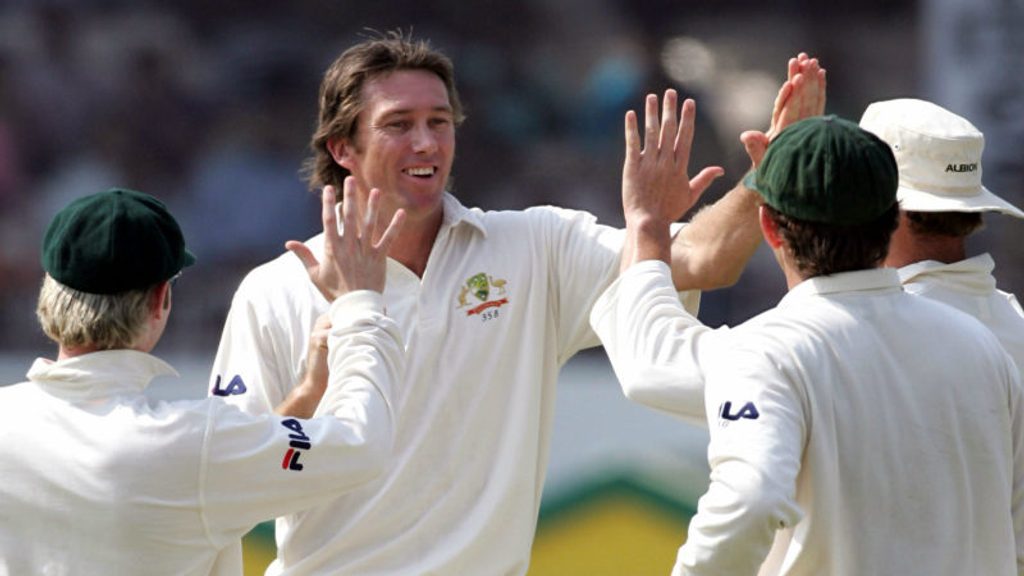 McGrath has the best bowling average of all fast bowlers to have played in Border-Gavaskar series
McGrath has the best bowling average of all fast bowlers to have played in Border-Gavaskar series
McGrath’s record against India is impressive. His bowling average of 18.64 is the best among all fast bowlers and the second-best of all after Ravindra Jadeja’s 18.02. He picked up 51 wickets from 11 Tests, and his 14 wickets from four Tests during Australia’s 2004 tour helped his team clinch the series. The fast bowler’s 5-48 in the New Year’s Test of 2000 helped Australia skittle India out for 150 in the first innings and register an innings victory to complete a 3-0 series sweep.








